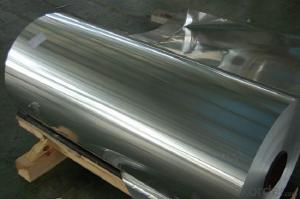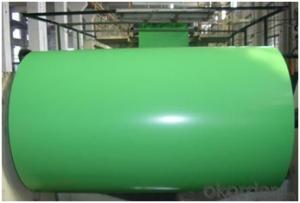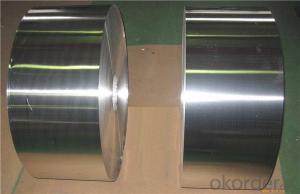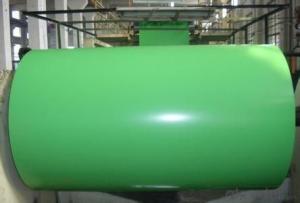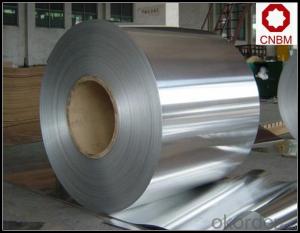F/R Double Side Reflective Aluminum Foil Insulation
- Loading Port:
- Shanghai
- Payment Terms:
- TT OR LC
- Min Order Qty:
- 10 m.t.
- Supply Capability:
- 10000 m.t./month
OKorder Service Pledge
OKorder Financial Service
You Might Also Like
l Product Construction:
Composition | Description | Value (English) | Value (Metric) |
Foil | Aluminum | 0.28 mil | 7 micron |
Reinforcing - MD | Fiberglass | 2 / inch | 8 / 100mm |
Reinforcing - XD | Fiberglass | 3 / inch | 12 / 100mm |
Kraft | Natural | 49 lbs / 3000 ft2 | 80gsm |
Adhesive | Flame-Retardant Glue | ------ | ------ |
Foil | Aluminum | 0.28 mil | 7 micron |
l Packaging & Delivery
Packaging detail: Standard seaworthy exporting carton, Wooden
pallets, waterproof paper and plastic coverage or or
as customer's requirements
Delivery detail: about 25 days from received oiginal L/C or advance
payment
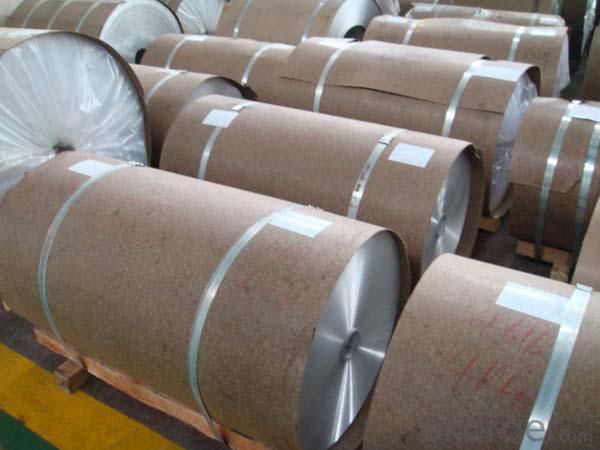
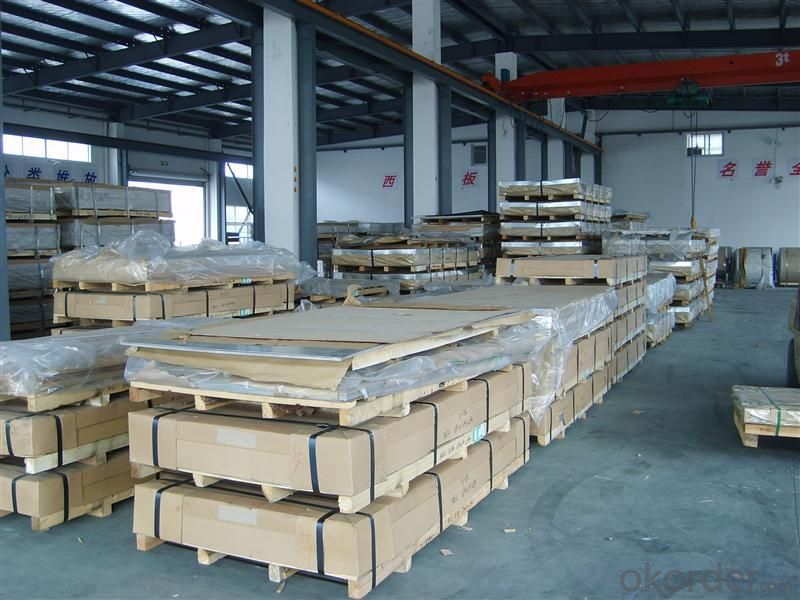
l Company Profile
CNBM International Corporation, China National Building Materials (Group) Corporation, is one of the largest companies in China building material & equipment industry, with 42,800 employees and sales in 2005 of US Dollar 4.395 billion. In 2006, China National Building Material Company Limited was listed on Hong Kong Stock Market with the stock code as 3323.
The business scope of CNBM covers from manufacturing and sales of a series of building materials to scientific research and design, import and export trade. In many of these fields, CNBM is playing the leading role.
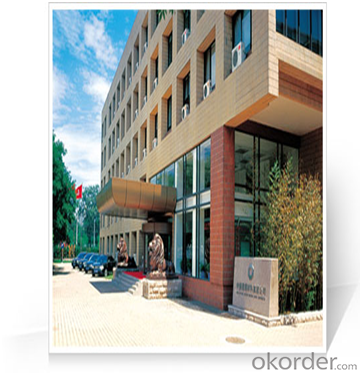
l Product Images
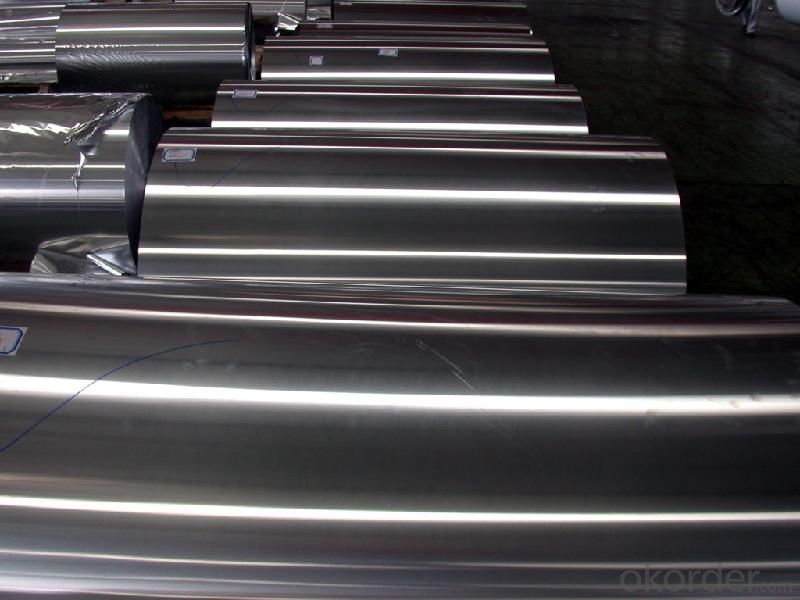
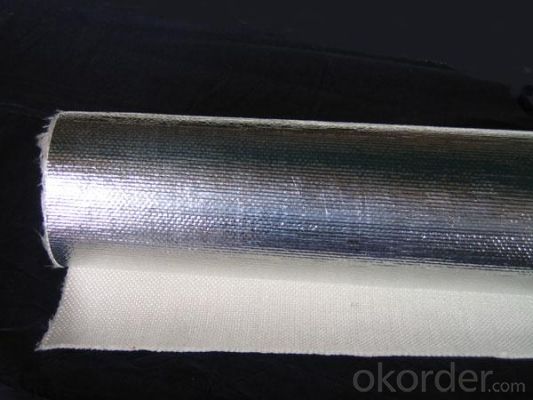
l FAQ
Q: Do you provide free samples?
A: Yes, free samples will be sent to you on freight at destination.
Q: Can I get your latest products catalogue?
A: Yes, it will be sent to you in no time.
Q: What is the MOQ?
A: 10 tons
Q: What are your payment terms?
A: We accept L/C, T/T.
l Contact Us
Email:service@okorder.com
- Q:Can aluminum coils be used in high-altitude environments?
- Yes, aluminum coils can be used in high-altitude environments. Aluminum is known for its lightweight and corrosion-resistant properties, which make it suitable for various applications, including those in high-altitude environments. Additionally, aluminum has a high strength-to-weight ratio, allowing it to withstand the challenges posed by high altitudes.
- Q:Can aluminum coils be used in high-temperature applications?
- Yes, aluminum coils can be used in high-temperature applications. Aluminum has a high melting point of 660 degrees Celsius (1220 degrees Fahrenheit), which makes it suitable for various high-temperature environments. Additionally, aluminum has excellent thermal conductivity, allowing it to efficiently transfer heat, making it a popular choice for heat exchangers and HVAC systems. However, it is important to note that the specific application and temperature requirements should be considered, as extremely high temperatures beyond the melting point of aluminum may require alternative materials.
- Q:Are aluminum coils suitable for high-temperature applications?
- Aluminum coils are generally not suitable for high-temperature applications. While aluminum has many beneficial properties such as lightweight and corrosion resistance, it has a relatively low melting point of around 660 degrees Celsius (1220 degrees Fahrenheit). This means that aluminum coils may not be able to withstand the extreme heat typically associated with high-temperature applications. In high-temperature environments, materials with higher melting points such as stainless steel or nickel alloys are often preferred. These materials can withstand higher temperatures without losing their structural integrity or experiencing significant deformation. However, it is worth noting that there are certain aluminum alloys that have been developed to have improved high-temperature properties. These alloys typically contain elements such as copper, magnesium, or zinc, which enhance their strength and heat resistance. These specialized aluminum alloys may be suitable for specific high-temperature applications where their unique properties are required. In conclusion, while standard aluminum coils may not be suitable for high-temperature applications, there are specialized aluminum alloys available that can provide better performance in elevated temperature environments. It is important to consider the specific temperature requirements and consult with experts to determine the most suitable material for a particular high-temperature application.
- Q:Are aluminum coils resistant to abrasion?
- Yes, aluminum coils are generally resistant to abrasion.
- Q:What are the fire-resistant properties of aluminum coils?
- Due to its inherent characteristics as a metal, aluminum exhibits excellent fire-resistant qualities when formed into coils. With a melting point of 660 degrees Celsius (1220 degrees Fahrenheit), aluminum can endure high temperatures without melting, thereby making aluminum coils resistant to fire hazards. Furthermore, unlike certain other metals, aluminum does not produce flammable gases when exposed to fire. This non-combustible attribute prevents the fire from spreading and minimizes the potential for fire-related damages. Additionally, due to its low thermal conductivity, aluminum does not efficiently conduct heat. Consequently, aluminum coils do not facilitate the transfer of heat from one area to another, which aids in containing and controlling the fire's spread. Moreover, aluminum coils frequently undergo a protective coating process to enhance their fire resistance. These coatings, composed of materials like polyvinylidene fluoride (PVDF) or polyester, create an additional barrier against fire and heat. Engineered to withstand extreme temperatures while maintaining their integrity, these coatings further bolster the fire-resistant qualities of aluminum coils. In summary, aluminum coils possess exceptional fire-resistant characteristics owing to their high melting point, non-combustible nature, low thermal conductivity, and protective coatings. These attributes make aluminum coils a dependable choice for applications where fire safety is paramount, such as in building construction, electrical wiring, and transportation industries.
- Q:Can aluminum coils be used in low-friction applications?
- Yes, aluminum coils can be used in low-friction applications. Aluminum is a lightweight and corrosion-resistant material that has excellent thermal conductivity. These properties make it suitable for various applications where low-friction is desired. In industries such as automotive, aerospace, and HVAC systems, aluminum coils are often used in heat exchangers, evaporators, condensers, and cooling coils. These coils are designed to efficiently transfer heat, while minimizing friction and energy loss. Additionally, aluminum coils can be used in electrical motors, generators, and transformers, where low friction is essential for smooth operation and reduced energy consumption. The lightweight nature of aluminum also helps to reduce the overall weight of the system, leading to improved efficiency. Furthermore, aluminum coils can be utilized in various types of machinery and equipment that require low friction, such as conveyor systems, sliding mechanisms, and bearings. Aluminum's low coefficient of friction allows for smooth and efficient movement, minimizing wear and tear on the components. Overall, aluminum coils are a versatile solution for low-friction applications due to their lightweight, corrosion-resistant, and thermally conductive properties. Their use can lead to improved energy efficiency, reduced maintenance costs, and enhanced performance in a wide range of industries.
- Q:Can aluminum coils be used in refrigeration systems?
- Yes, aluminum coils can be used in refrigeration systems. Aluminum is a common material choice for evaporator coils in refrigeration systems due to its excellent heat transfer properties, corrosion resistance, and lightweight nature.
- Q:If the aluminum coil is 220 kg, 0.3 thick and 500 wide, how much is the coil diameter?
- With the outer diameter and inner diameter, you can know the volume. With the density and volume, we can calculate the weight. And with weight, we can know the length.
- Q:Are aluminum coils suitable for insulation applications?
- Indeed, insulation applications find aluminum coils to be a fitting option. The outstanding thermal conductivity properties of aluminum make it a widely preferred material for insulation purposes. Its ability to effectively deflect heat and cold renders it an efficient choice for insulating applications. What's more, aluminum coils boast lightweight construction, durability, and resistance to corrosion, rendering them suitable for a range of insulation requirements. Their installation is hassle-free, and they offer enduring insulation performance. In summary, aluminum coils emerge as an exceptional selection for insulation applications.
- Q:Are there any limitations on the surface treatment of aluminum coils?
- Yes, there are limitations on the surface treatment of aluminum coils. These limitations can vary depending on the specific surface treatment method being used. Factors such as the type of coating or finish being applied, the thickness of the coating, and the compatibility of the treatment with the aluminum alloy can all impose limitations on the surface treatment process. Additionally, environmental and regulatory considerations may also play a role in determining the allowable surface treatments for aluminum coils.
1. Manufacturer Overview |
|
|---|---|
| Location | |
| Year Established | |
| Annual Output Value | |
| Main Markets | |
| Company Certifications | |
2. Manufacturer Certificates |
|
|---|---|
| a) Certification Name | |
| Range | |
| Reference | |
| Validity Period | |
3. Manufacturer Capability |
|
|---|---|
| a)Trade Capacity | |
| Nearest Port | |
| Export Percentage | |
| No.of Employees in Trade Department | |
| Language Spoken: | |
| b)Factory Information | |
| Factory Size: | |
| No. of Production Lines | |
| Contract Manufacturing | |
| Product Price Range | |
Send your message to us
F/R Double Side Reflective Aluminum Foil Insulation
- Loading Port:
- Shanghai
- Payment Terms:
- TT OR LC
- Min Order Qty:
- 10 m.t.
- Supply Capability:
- 10000 m.t./month
OKorder Service Pledge
OKorder Financial Service
Similar products
New products
Hot products
Hot Searches
Related keywords
